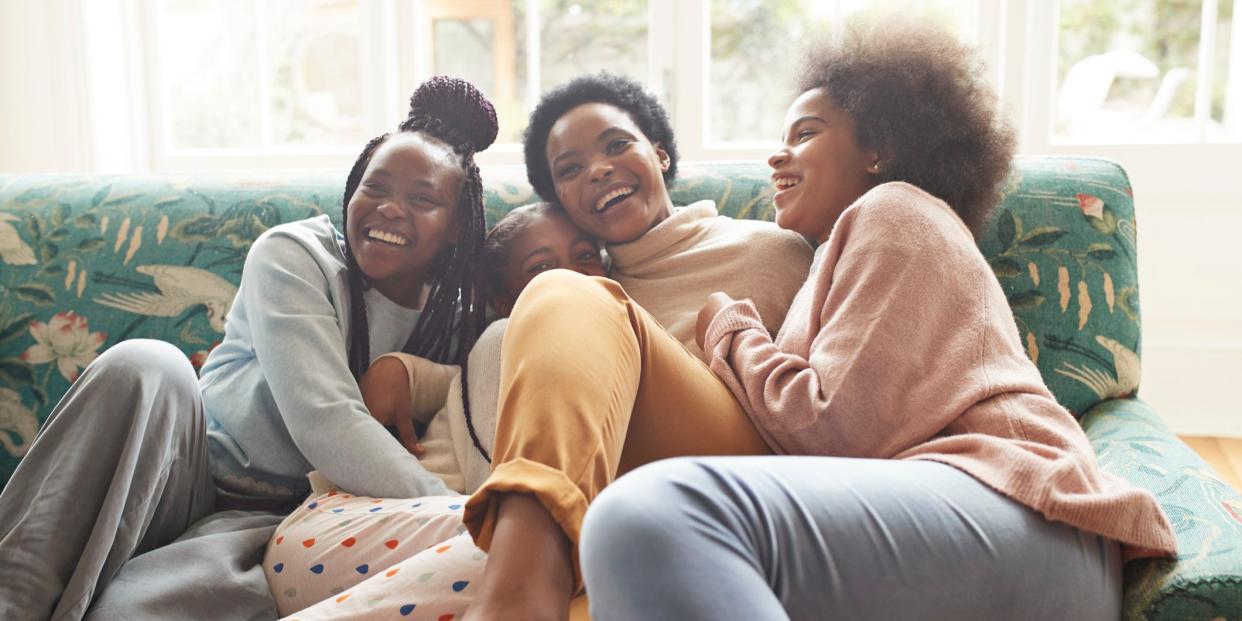The truth about period syncing and the real reason you may be experiencing it

Period syncing is the idea that women who spend a lot of time together will have their menstrual cycles align.
However, scientific studies have been unable to prove that period syncing actually occurs.
Pure mathematical probability is the likeliest reason why women's periods sync up.
This article was medically reviewed by Olivia P. Myrick, MD, who is a clinical assistant professor with the Department of Obstetrics and Gynecology at NYU Langone.
If you've ever lived with multiple people who have periods, you've probably experienced period syncing. Period syncing is the idea that when women live in close proximity to each other or spend a lot of time together, the timing of their monthly periods will start to "sync up" or align.
Roommates, close friends, coworkers, same-sex couples, and family members who start their period on or about the same day every month can feel like this is evidence of closeness or a special bond between the two of them.
But even though this is a popular belief, there isn't a lot of evidence for it — and some of what we do know is conflicting.
What is period syncing?
"Period syncing refers to two or more people who know each other having their periods at the same time," says Lynae Brayboy, MD, Chief Health Officer for the female health app Clue, which helps women track their periods. "The people may be working together or living together or have some other relationship that frequently brings them into contact."
The first scientific evidence of period syncing came about in 1971, with the "McClintock study." Martha McClintock, a researcher at Harvard University, analyzed the menstrual cycles of a small sample of women living in college dorms, aged 17 to 22. Pairs with close proximity were grouped together as "closest friends" or "roommates" — and pairs that had no relationship were used as the control.
The study found that, after six months, those who were in close proximity to each other had their periods start three to seven days apart whereas the control group periods started five to 15 days apart. However, other researchers found the study's analysis to be flawed, and many have since disregarded its findings.
Is period syncing a myth?
Subsequent studies conducted in the 1990s found conflicting evidence about period syncing. A 1993 study found that 29 same-sex couples who both had periods did not experience syncing. A 1995 study of pairs of close friends who did not live together also did not experience period syncing.
In 2017, period tracking app Clue teamed up with Oxford University to better understand cycle syncing. They analyzed the cycles of 360 pairs of women who knew each other well and tracked their cycles through the app. The results found that after three cycles, 273 of the pairs actually saw a larger difference in their cycle start date than they did at the beginning of the study — which would indicate that period syncing doesn't occur.
It's important to note that the study was not peer-reviewed, which means that outside medical experts haven't signed-off on the study's methodology or conclusions.
"These results are in no way definitive," says Brayboy, who was not involved in that study. "The short answer is that we need more investigation."
Why do women experience period syncing, then?
Originally, McClintock hypothesized that pheromones — natural chemicals that send messages from one person to another — could be linked to period syncing.
McClintock theorized that period syncing may have less to do with close female interactions and more to do with close female friends being exposed to male pheromones at similar times. A very small 2003 study found that women exposed to male pheromones saw an increase in the hormone responsible for triggering ovulation, but there still isn't much evidence that connects pheromones and period syncing.
"Pheromones play a role, but as far as I can tell in the literature, we haven't seen any large-scale studies regarding how long and how often pheromone exposure can change cycling," says Brayboy.
If you experience period syncing with a friend or someone you live with, it's more likely the result of pure probability.
That's because cycle length varies from person to person. Some people have their period every 21 days, while others see their period begin every 35 days. Some people experience bleeding for a week, while others only bleed for a day or two. Some people have regular periods, while others have cycles that are less regular.
Your menstrual cycle may last for 15% to 30% of every month. With odds like that, it's highly likely that at some point you and a friend, roommate, or coworker will both be experiencing bleeding at the same time.
The bottom line
While most long-term studies have not been able to prove the idea of period syncing, that doesn't mean you aren't experiencing it. When you and your bestie sync up it's possible that pheromones may be at play, but more likely than not it's just pure statistical coincidence — and sadly not a sign of your tight bond.
Related articles from Health Reference:
What everyone should know about birth control, from the types to effectiveness
How birth control pills work by tricking the body into thinking it's already pregnant
Yes, birth control helps with cramps and some methods are better
The best diet for endometriosis that can help relieve painful symptoms
Read the original article on Insider

